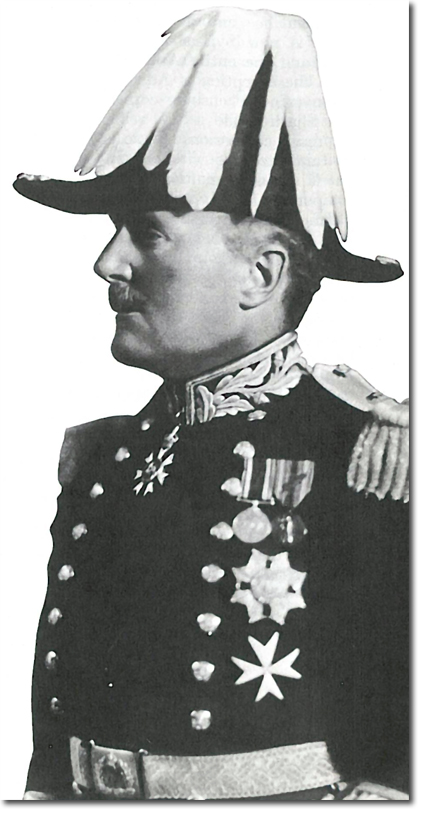|
|


|
|
Ronald Storrs was part of the Arab bureau formed in Cairo in December 1915, to which T. E. Lawrence was attached in January 1916, and a shared interest in classics led to a lasting friendship between the two men (Storrs was the principal pallbearer at Lawrence's funeral in 1935). On 10 June 1916 Hussein raised the Arab revolt, but the momentum seemed uncertain and in October 1916 Storrs secured permission to take Lawrence as a companion on a mission to Jiddah to reorganize it.
In Seven Pillars of Wisdom Lawrence wrote of Storrs as being the most brilliant Englishman in the Middle East and described his love of music, literature, sculpture, and painting, but also suggested his limitations: His shadow would have covered our work and British policy in the East like a cloak, had he been able to deny himself the world, and to prepare his mind and body with the sternness of an athlete for a great fight. Lawrence recorded that on board ship, en route for Jiddah, Storrs discoursed with Aziz al-Masri, an Arab leader, on Wagner and Debussy while sitting in a red leather armchair and that the great man's sweat turned the seat of his trousers a vivid scarlet. A portrait of Storrs by John Singer Sargent is reproduced in the publicly circulated 1935 edition of Seven Pillars of Wisdom. According to Harry Luke, his successor as oriental secretary in Egypt, Storrs had 'a surprisingly cosmopolitan outlook on life, to which were added a discriminating taste, a Voltairian cynicism, a lucidity of thought ' and a wide but critical and discriminating appreciation of the good things of this life'. In 1917 Storrs served as assistant political officer to the Anglo-French mission of the Egyptian expeditionary force and was also attached to the secretariat of the British war cabinet. At the end of 1917 he was appointed military governor of Jerusalem and served in that capacity until 1920 when he became civil governor of Jerusalem and Judea (1920'26). The Zionists did not like him and he was the focus of an anti-British propaganda campaign. Although the model of what Zionists hoped for from a British administrator, a man who shared their cultured interests in fields of literature, music, and languages'something regarded as unusual in British leaders at that time'Storrs was also vain and arrogant. But, above all, he believed in fairness, and in that he was the model British civil servant. This attitude is evidenced as late as 1940 when he wrote in his updated account of Zionism, Lawrence of Arabia: Zionism and Palestine, of the need to see that 'both halves of the mandate are faithfully and practicably maintained' . When the war cabinet's Middle East committee sent a Zionist commission, led by Chaim Weizmann, to Palestine in January 1918 to see to the implementation of the Balfour declaration, Storrs, speaking 'as a convinced Zionist', thought the commission 'lacked a sense of the dramatic activity': the Balfour declaration hardly opened for the inhabitants of Palestine 'the beatific vision of a new Heaven and a new Earth'. Members of the Zionist commission successfully opposed the appointment of Storrs as chief administrator. As civil governor Storrs left much of the administration to subordinates and instead concentrated on a cultural and aesthetic transformation of the city, founding Pro-Jerusalem, a society for the protection and preservation of antiquities, and brought in Charles Ashbee, the architect, as town planner. The informed in the city were, however, conscious that Storrs pretended to be a better linguist than he was, and thought that he could not be wholly trusted and was open to trickery'which he used, for example, to secure the removal of an ugly partition in the church of the Nativity at Bethlehem. Storrs gave a much more favourable account of the latter action in his best-selling memoirs, Orientations (1937). This work provided a wonderfully vivid personal account of a critical juncture in the history of the Middle East. |
Armed Forces | Art and Culture | Articles | Biographies | Colonies | Discussion | Glossary | Home | Library | Links | Map Room | Sources and Media | Science and Technology | Search | Student Zone | Timelines | TV & Film | Wargames